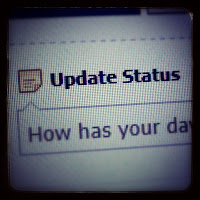We've seen a lot of recent NLRB action touching
on social media issues. But what’s an
employer supposed to do with all of this information? Let’s take this in some bite-sized chunks,
shall we?
First, an employer has to understand
the general kinds and sources of the guidance, decisions, or information all
the excitement has been about.
Generally, we have:
- Reports or Memorandum from the Office of the NLRB’s acting General Counsel. Think of the GC’s office as a kind of “prosecutor’s office” – that is, the enforcement arm of the agency. These reports or memoranda are guidance documents. The GC’s opinion is valuable, but these aren’t binding on the NLRB, and not the same thing as an NLRB decision.
ALJ Decisions. If a charge is filed with an NLRB Regional Office and the investigation leads to formal action, then a complaint is filed. An Administrative Law Judge presides and issues the initial decision. A party may appeal that decision by filing exceptions and to transfer the case to the Board.
- Board Decisions. So, NLRB decisions are issued after a party appeals an ALJ decision and the Board renders its own conclusion. In other words, a Board decision carries more weight than an ALJ decision.
- Court Decisions. Board decisions can be appealed to federal courts. So, even when we have an actual NLRB decision, keep in mind it’s still not necessarily the final say.
Second, an employer should
understand the context of the more specific documents and filings we’ve been
reading about in the press regarding NLRB action and social media, and the
context in which that information is released.
Generally, we have:
- Guidance documents out of the NLRB Office of the General Counsel. The excitement ramped up in summer 2011, when the GC issued its first report summarizing investigations and outcomes in 14 cases involving social media. In January 2012, the General Counsel issued an updated report, and by May, issued its third report in a year.
- ALJ Decisions. We’ve also seen a number of ALJ decisions handed down recently.
- Board Decisions. In September of 2012, we saw the first two Board decisions addressing social media policies: the Costco decision issued on September 7, 2012, and the Karl Knauz Motors decisions issued on September 28, 2012. Of course, we also have the Hispanics United decision just issued on December 14, 2012 that I just blogged about yesterday.
- Other principles. We also have some general principles being pulled from complaints filed against employers, but settled before ever resolved. Some commentators and lawyers have extrapolated bits and pieces from actions like that, where it may make sense do so (generally trying to err on the side of being most prudent).
Third, employers should understand
how freak-fast this area of law really is developing. Just to illustrate the kind of rapid changes
we’ve been seeing (and the interplay among the various kinds of
documents): the General Counsel’s May
30, 2012 report discusses seven recent cases.
On the same day that report
was issued, an ALJ issued a decision in one of the cases discussed within the
GC’s report. In other words, the May 30,
2012 GC guidance was at least arguably outdated on the very date it was issued!
Taking all these principles together may help
employers process and apply the flurry of NLRB-related information flooding
inboxes these days.
- When reading a tip or interpretation, pay attention to the framework and context. Sometimes an online summary fails to clearly explain what kind of document is even being examined! It’s difficult (if not impossible) to weigh the relative importance without knowing the context. Being an educated consumer of information allows more effective policy drafting. Very slight wording changes and nuances can leave a well-intentioned employer in a lurch.
- Much of the emphasis has been on the General Counsel’s advice and guidance. Keep in mind that although valuable, it’s not binding.
- Recognize the importance of staying on top of recent developments in this area. It’s a ridiculously fast developing area of the law. Policies should be updated and checked regularly, and be sure you are (or your attorney is) familiar with the recent changes.








